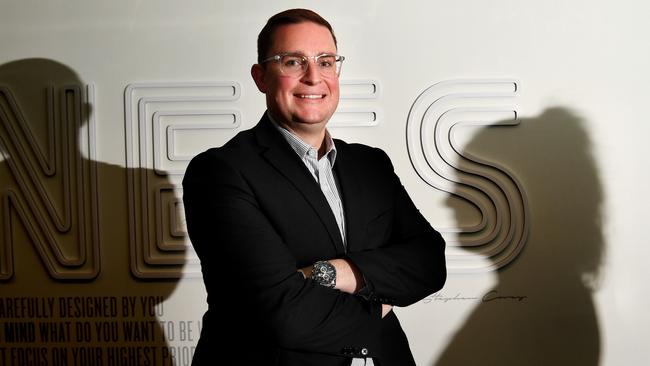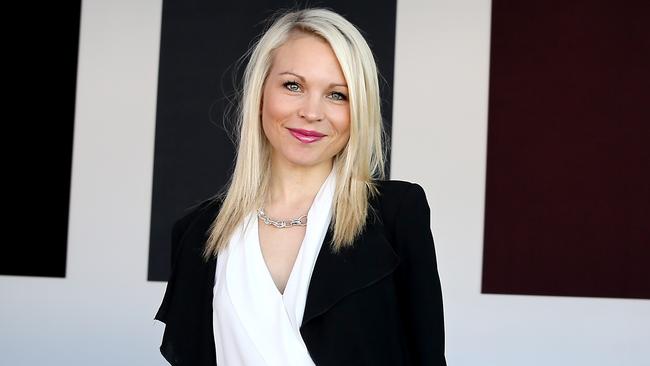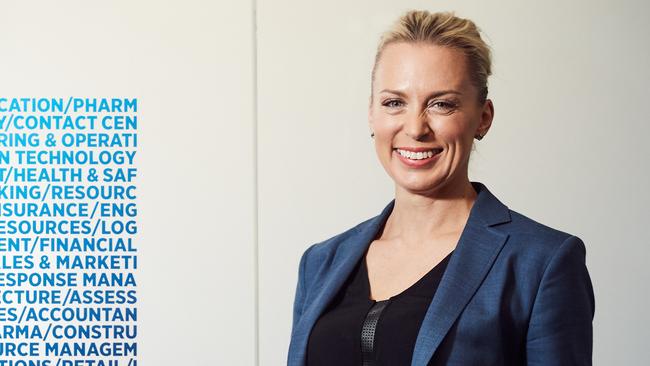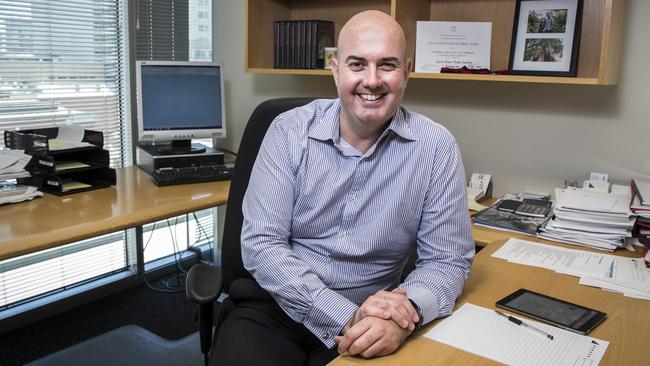The future of the handshake uncertain as COVID-19 kills work etiquette
With handshakes discouraged thanks to coronavirus, recruiters reveal if the greeting in job interviews and networking is gone forever, and if alternatives will become mainstream.
Careers
Don't miss out on the headlines from Careers. Followed categories will be added to My News.
- A new way to connect jobseekers and employers has been launched
- How to use the Australian National Talent Registry to get a job
CAREERS’ panel of expert recruiters answers a reader’s question each week. Have a question? Email careers_qs@news.com.au
Has the handshake died? What professional alternatives should I be using instead, in interviews or networking?
Andrew Sullivan
Managing director,
Sullivan Consulting
I don’t think the handshake will die, although in the present climate we’ve seen a range of alternatives emerge. Two options I think could become more widespread are both about signalling openness to shaking hands. The first is to put your hand on your chest to signal you’d prefer not to shake hands or by your side if you’re happy to shake hands. I can see this working well in an interview context. I also like the idea of wearing stoplight coloured bands: green for “ready to handshake”, orange for “being cautious” and red for “keeping my distance”. As people return to in person networking, I can see this being a helpful and easy way of managing face-to-face interactions.

Alexandra Rosser
Head of Organisational Psychology Consulting,
Stillwell Management Consultants
The handshake is in indefinite hibernation and its death likely depends on how prolonged are social distancing restrictions. At this stage it is premature to declare handshakes are extinct. As yet, there does not seem to be a universally accepted or comfortable alternative with fist pumps, elbow bumps, head nods and foot taps all being used but somewhat awkwardly. My recommendation for job interviews is either to wait to take your cue from the interviewer, look to see for signs at reception indicating preferences regarding greetings and/or check with whomever schedules your interview as to their advice. At present, I think it is perfectly acceptable when networking to either use verbal communication to warmly meet/greet people and abstain from any non-verbal contact or pick a preferred and safe alternative to the handshake, offer it to the other person but not be offended if they refuse.

Lisa Morris
Director,
Hays
In our pre-COVID-19 working world, shaking hands before a face-to-face meeting or interview was considered best practice. Not only did it break the ice, it was also considered an innately human social interaction that we never thought twice about doing. However, today social distancing has fundamentally changed how we engage and interact with each other in our professional lives. Now, the very thought of greeting a colleague or interviewer with a handshake feels inappropriate. Everyone is reassessing how they interact with others at work and while there is yet to be a consensus, some of the more popular choices are to greet people with a nod, small wave, a hand on your heart or a simple namaste gesture. Ultimately, making a good first impression always involved more than just offering a firm handshake. So, regardless of the alternative you adopt, you can still ensure you make a good first impression by offering a genuine smile and a few words to communicate how happy you are to meet.

Justin Hinora
Executive consultant,
Hender Consulting
The handshake dates to fifth century BC and has survived many different pandemics, so I don’t think it has died or will die. COVID-19 has certainly forced a lot of behaviour change but just as the first wave was flattening, there were many who resorted back to the habit of a handshake. While bumping elbows has become somewhat of a social norm, there is no substitute in a professional setting to making meaningful eye contact and acknowledging the person in a genuine and sincere manner at a social distance. In fact, it is becoming so professionally acceptable and normal that it may even rival the handshake.

MORE NEWS
The importance of being a cultural fit for your new employer
The worst things jobseekers can do in a job interview
How to succeed in video job interviews
News Corp has partnered with HR technology company Shortlyster to develop the Australian National Talent Registry, an initiative to help get Australians back to work, as COVID-19 has left hundreds of thousands of people either jobless or with reduced working hours.
The registry aims to connect jobseekers, whose employment does not have to have been directly affected by the coronavirus pandemic to participate, with employers on cultural-fit and psychological level, not just qualifications and experience.
It is free for jobseekers to sign up. To sign up, visit adelaidenow.com.au/careers
